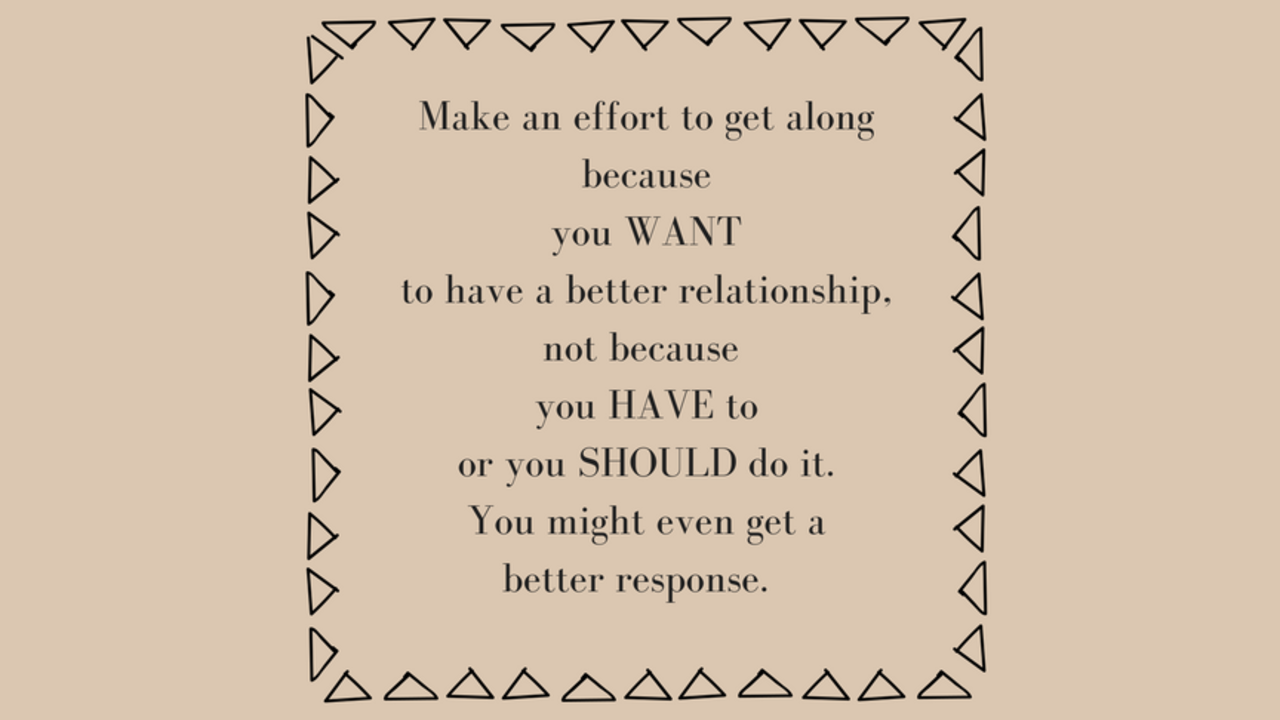Want a Better Relationship? Shift Your Thinking

When you approach someone who is important to you from an “I want to get along with you” perspective, rather than an “I should get along with you” or “I need to get along with you” perspective, you have a better chance of a positive outcome.
Think about it: “I want to get along with you” means it’s an option for me, not a requirement. I am making a choice to have a better relationship with you, the other person, simply because I want to. My energy toward you is therefore more relaxed and less pressured.
Of course, there are relationships and situations in which needing to get along with someone is more of a requirement. But again, by you taking control and bringing an “I want to” attitude, even in those scenarios, you might create a more open environment for problem-solving and learning.
When I was in graduate school, I loved my classes, all except one. And, unfortunately for me, that class was taught by a professor who had also written the book for the course. I found him very dry and difficult to understand. The textbook was even worse. I tuned out and was turned off, but I needed to do well in his class if I was going to stay in the program. I had to get a B or else I was out. I just couldn’t connect with him or anything he said or did. I decided to talk to my father about it and he had some simple yet important advice. He said, “Fake it. Pretend that you want to understand what he’s saying. Pretend that you like him and see if you can switch your energy to want to learn from him, instead of resisting him.” And I followed his advice. During the next class, I focused on wanting to understand what my (still dry) professor was saying, instead of being consumed with my extreme boredom and dislike. And, surprisingly, during that one class, that simple shift of my thinking softened the entire experience for me. I actually didn’t mind being in the class. He wasn’t as annoying and I started to learn the material. At that important moment in my life, I made a conscious decision to shift my thinking about how I approached a difficult situation. I needed this class in order to succeed, but in order to do so, I had to change my negative thinking.
This kind of shift applies across the board to all relationships or situations in which your negativity or self-imposed pressure is getting in the way of your success. I encourage you to focus on wanting to get along, wanting to learn about the other person, and being open and curious to whatever they are bringing to each interaction.
Of note: The statement “I want to get along with you” is also one of the statements in Step 1 of the Relationship Protocol model. In the RP model, these words are used to state your intention out loud to the other person so they know you are seeking a positive outcome. However, to be clear, for our purposes here, you don’t necessarily need to say “I want to get along with you” out loud to them, but you do need to say it to yourself, as a reminder of how to achieve the best possible outcome.
